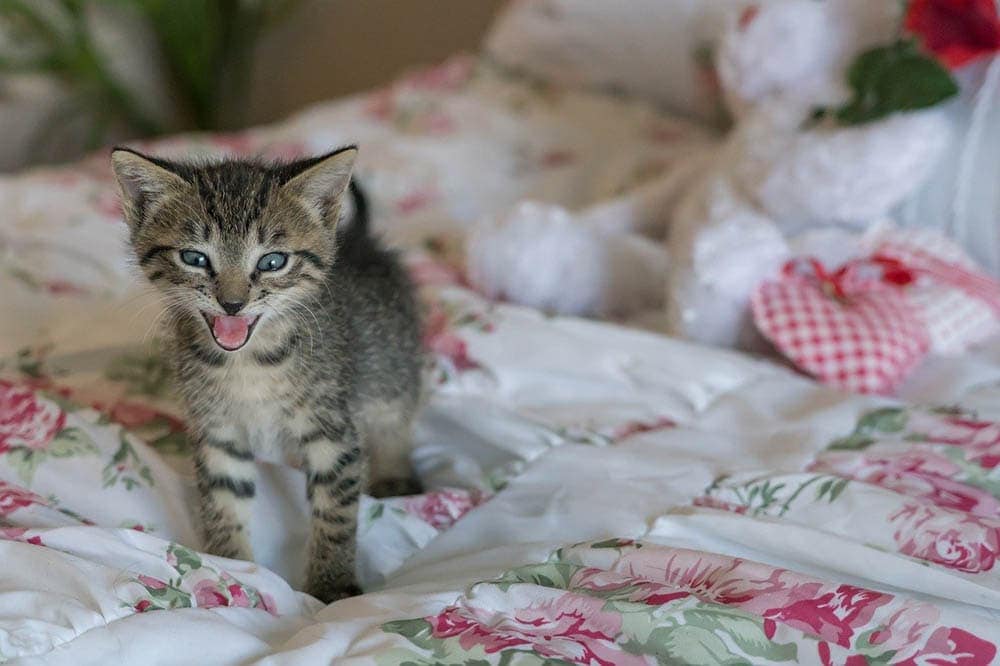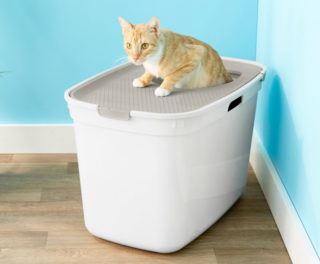Are Pepper Plants Toxic to Cats? Keeping Your Cat Safe

Updated on
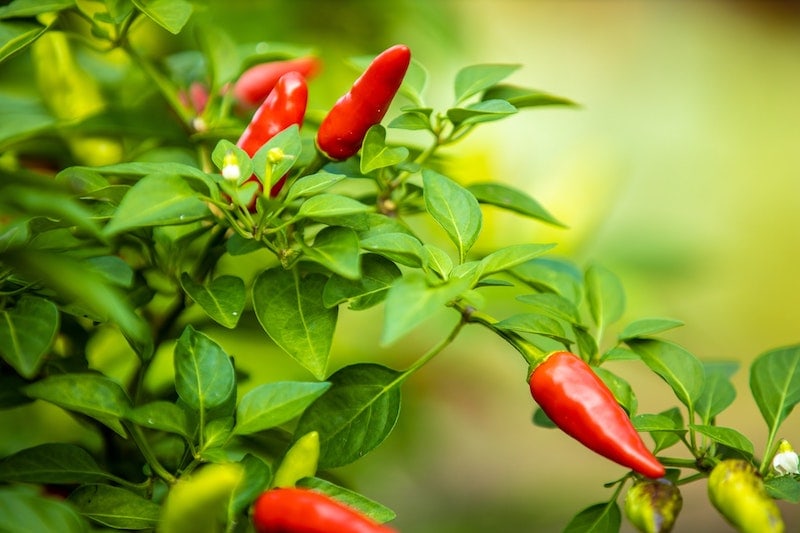
Click to Skip Ahead
If you’re a cat owner and a plant lover, you may be wondering if pepper plants are toxic to cats. There are many types of plant called “pepper” plants and knowing what your cat ate will help to know if it is toxic.
You should know that some pepper plants are toxic to cats because they contain a glycoalkaloid substance called solanine, that’s found in the leaves and stems or capsaicin in fruits and seeds depending on the plant.
Avoid Growing These Chili Peppers if You Have a Cat
Many types of chili peppers are toxic to cats, with new hybrids being created all the time. Because of this, we’re going to give you a list of the most common types of chili peppers you should avoid growing in your garden if you have a cat because they can make your pet sick. Steer clear of the following types of chili peppers:
- Anaheim
- Banana
- Cayenne
- Fresno
- Jalapeno
- Habanero
- Padron
- Piquillo
- Poblano
- Red Thai
- Serrano
- Shishito
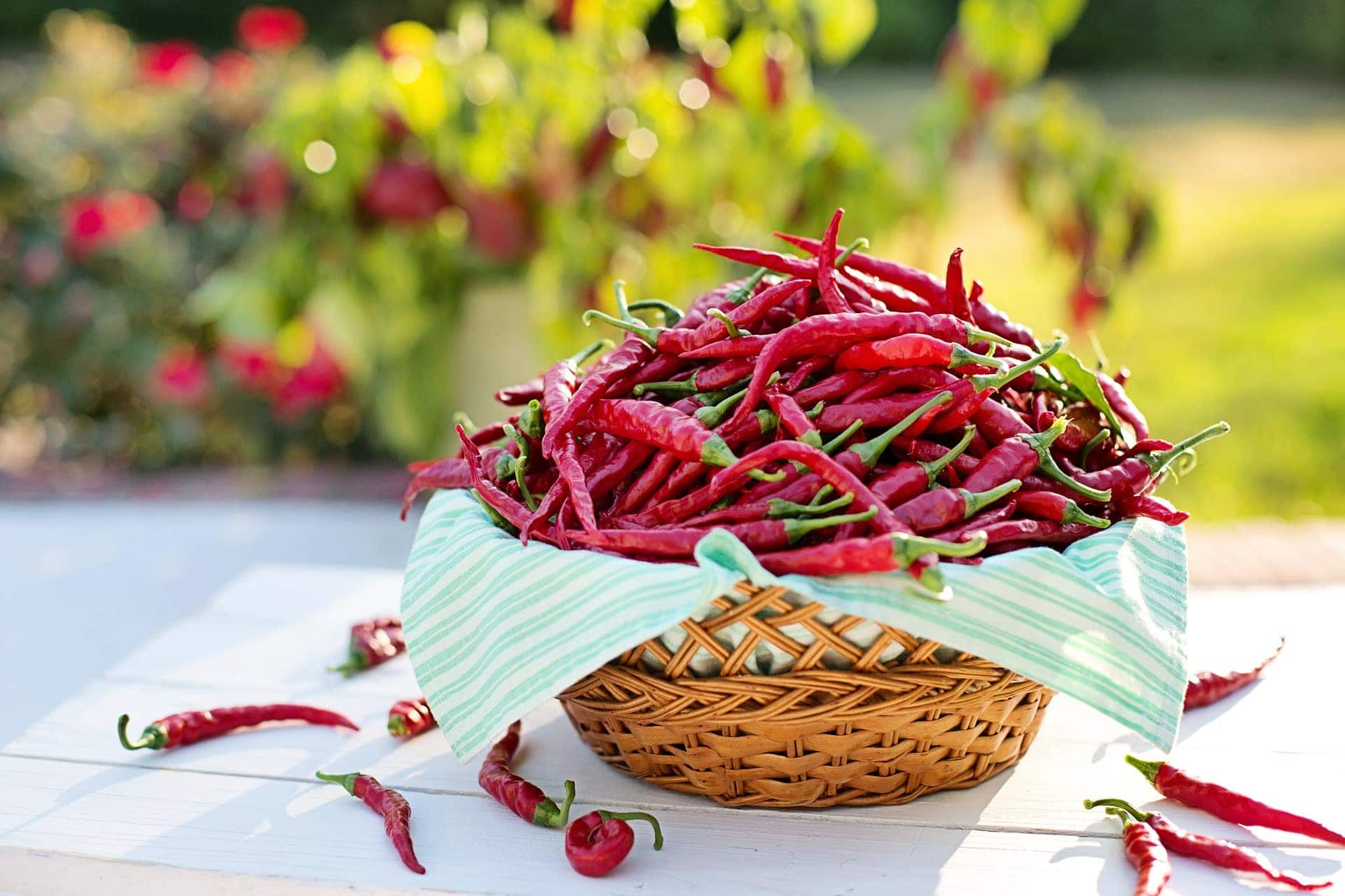
How Toxic Are Chili Peppers to Cats?
Now that you know that chili peppers are toxic to cats, you’re probably wondering what would happen if your cat ate some chili peppers. First and foremost, you should know that the typical cat will usually take a nibble or two of a pepper plant leaf or stem, only to discover it tastes horrible.
We’re telling you this because it’s unlikely that your cat would eat enough to get seriously ill. However, because cats tend to be unpredictable and quirky, you never know!
If your cat has eaten a chili pepper from the Capsicum Annuum family then the capsicum toxin is highly irritant causing pain when eaten—pain in the lips, mucus membranes, vomiting, diarrhea, and abdominal pain. Contact with the skin or eyes is also painful. It is not likely a cat will eat enough chili pepper to have worse symptoms than this.
If your cat eats the stems and leaves of a toxic ornamental pepper plant (Solanum pseudocapsicum), the bitter-tasting and poisonous glycoalkaloid solanine can cause gastrointestinal problems. These problems can lead to issues like a lack of appetite, lethargy, ulcers, diarrhea, and vomiting. Rarely they may show neuromuscular or cardiovascular signs such as trembling, incoordination, and slow heart rate.
What to Do If Your Cat Eats a Toxic Pepper Plant
You don’t have to seek veterinary care if your cat takes a lick or a tiny nibble of a toxic pepper plant. However, if you think that your cat ate quite a bit, give your veterinarian a call for some advice. Your vet will want to know what type of plant your cat got into and how much was consumed.
Your vet will also ask you how your cat is behaving and whether or not they’re showing signs of illness. You may be told to take your cat in for an examination so that your veterinarian can run tests and provide any necessary medical treatment.
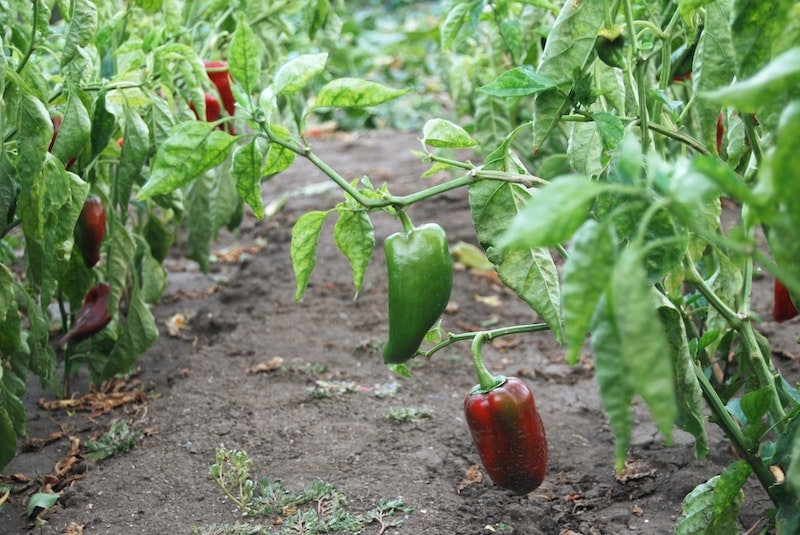
What Garden Vegetables Are Safe for Cats to Eat?
Don’t fret if you can’t grow your favorite pepper plant. There are plenty of cat-safe vegetables you can grow. A few top choices include:
A great idea is to grow some catnip for your feline friend. After all, your cat is a part of your family and deserves some treats now and then. Plus, catnip is perfectly safe for cats. It’s also hilarious to watch a cat get a bit of a kitty buzz!
If you don’t want to grow any plants, consider buying some catnip for your cat. If your cat is pestering you while you’re gardening, sprinkle some catnip in a location away from the garden so they can keep busy while you work.
Conclusion
You should not allow your cat to be around chili peppers because these plants are toxic to cats. If you suspect that your cat has eaten a toxic pepper plant, call the vet right away.
There are plenty of cat-safe plants you can grow in your yard, so don’t be too disappointed if you can’t grow your favorite chili pepper. Instead, consider growing some delicious beans, carrots, or cucumbers you can share with your little furry friend.
Featured Image Credit: Nick Artman, Unsplash



